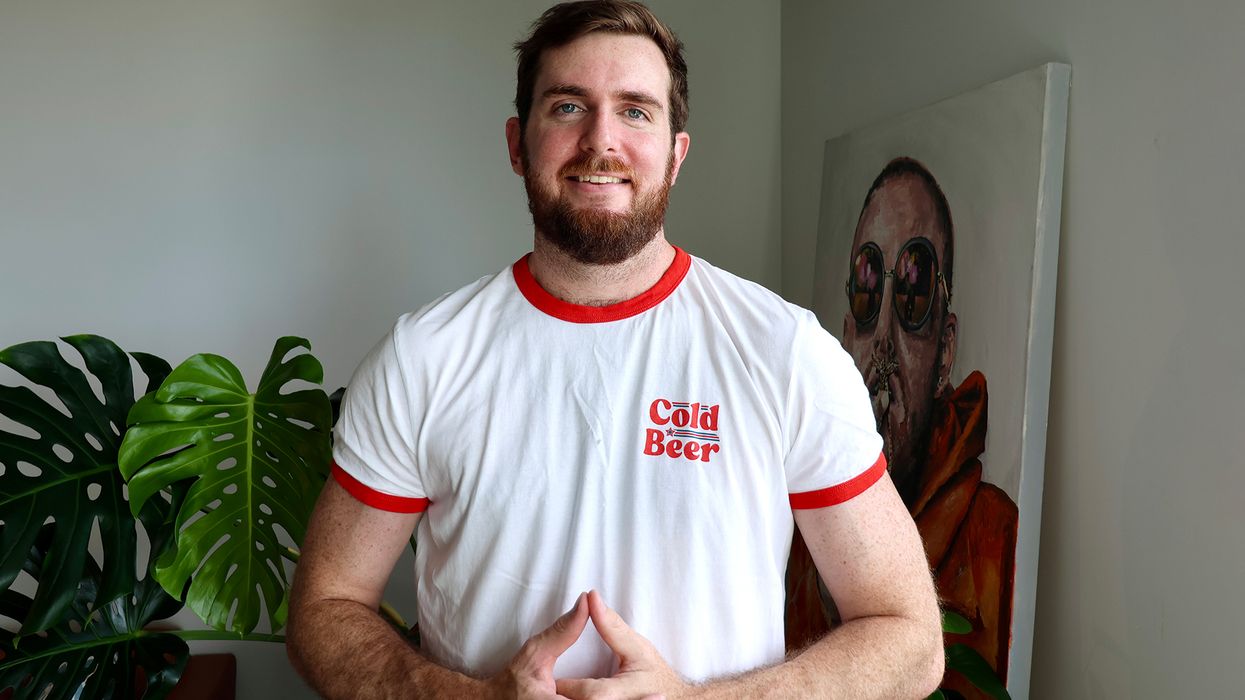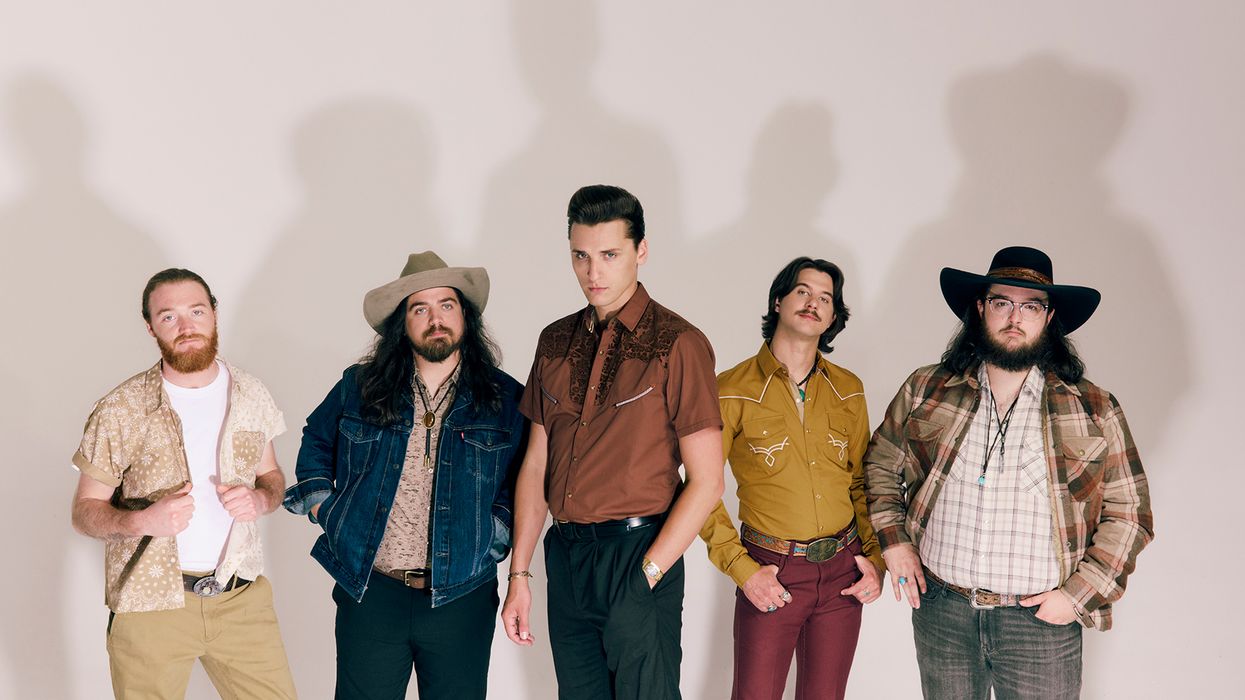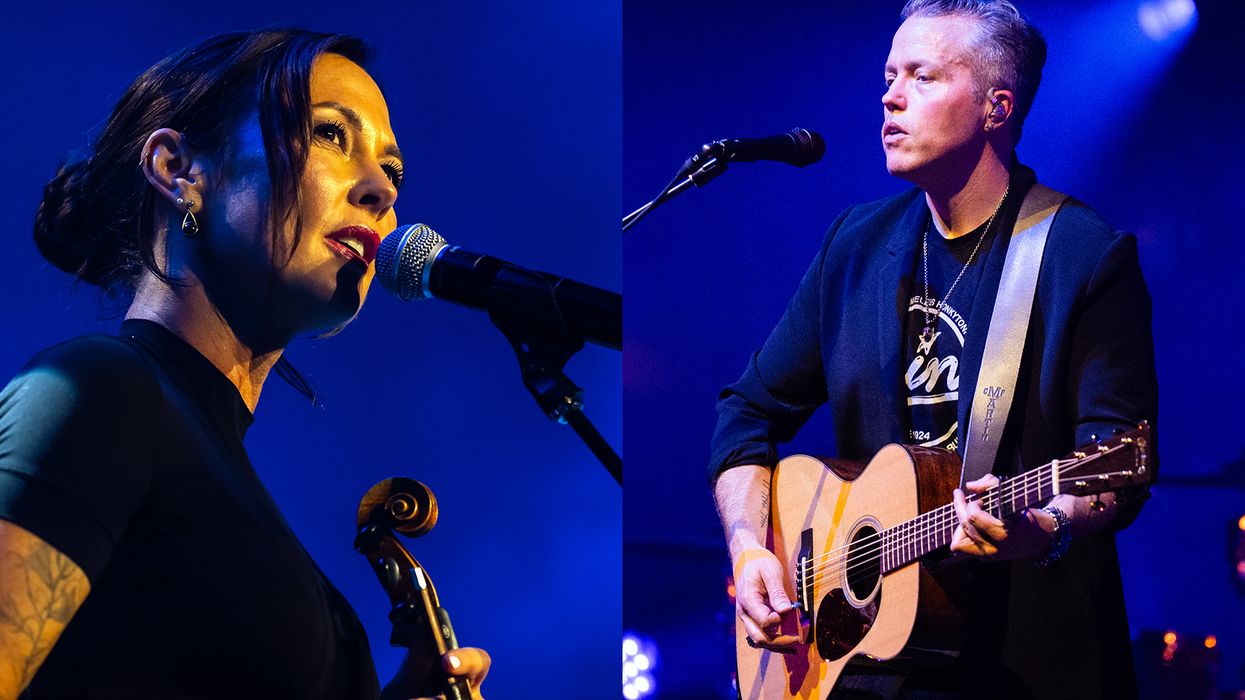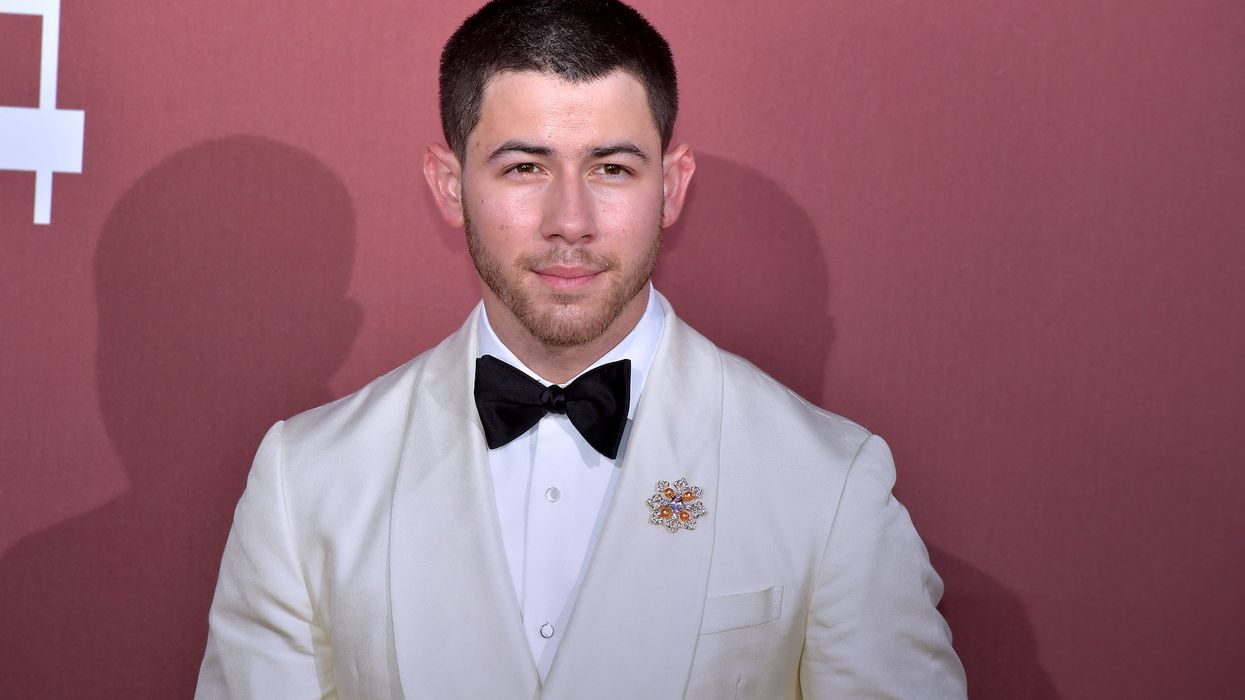The past six months of Laufey’s life have been nothing less than surreal. Last September, the 24-year-old multi-intrumentalist and singer released her elegant dream-world of a second album, Bewitched. In February, that record landed Laufey her first Grammy, for Best Traditional Pop Vocal Album.
“I was just like, ‘What the hell?’” she recalls. “My manager was like, ‘You should prepare a couple of words for a speech if you win.’ I didn’t, because I didn’t even want to go so far as to expect that I would.” She laughs as she adds: “I don’t know if it’s just the Chinese in me that my mother has put in me to always be humble and expect the least.”
Fresh off of that win, Laufey set out to begin one of two sold-out tours all around Europe and the U.S. that will keep her on the road for most of this spring and summer. In the fall, she’ll open for Mitski on select dates. (“It’s been such a dream of mine,” she says). And on April 26, the Los Angeles-based Icelandic Chinese musician will release Bewitched: The Goddess Edition, a deluxe version of the album that enamored hordes of fans and fellow musicians alike. The four new tracks on Goddess Edition, according to Laufey, find the artist expressing herself in more “honest and raw” ways than ever.
“I’ve definitely shown a fun, lighter side of me in past music that pokes fun at myself, a little bit sarcastic,” she says. “Although some of the songs are a bit sarcastic on the deluxe, I think it’s just a continuation of the Bewitched story as I mature more as a person.”
That growth is beautifully evident on the deluxe title track, “Goddess,” a sobering meditation on womanhood, existing in the public eye, and the pressure to maintain an impossible sense of perfection. “It is a funny thing to step on stage and wear beautiful clothing and lots of makeup and stand in front of thousands of fans and be depicted as this goddess, this character,” Laufey says. “It’s quite a high. But then I go home and I am like, ‘Whoa.’ I’m just alone and I don’t feel as much like that goddess. My makeup has leaked off a bit, I feel like my clothes aren’t fitting, and I feel not very goddess-like. I feel just more human.”
Over a soft-pedaled piano, Laufey sounds tentative and exploratory at first, but as the track progresses, an assured tone of defiance kicks in along with a swelling orchestra. “Now you know I’m not your fucking goddess,” she belts over one of her most enchanting, fullest arrangements yet. Laufey wrote the song while considering the “new life” she now leads (and, she says, with a specific guy in mind), but she hopes listeners will be able to relate universally.
“I feel like these are just the feelings of being a woman,” she says. “Feeling like you’re so perfect when you’re out in public, in class, in front of people, or on Instagram or something, and then you go home and you feel not as glamorous.”
Laufey has amassed a fiercely loyal fanbase with her singular blend of lovesick modern-pop lyricism atop sounds that recall Ella Fitzgerald and Chet Baker. She cites songwriters like Taylor Swift and Carole King as inspirations: “These strong women songwriters that I think tell their stories really, really well.” She’s also become somewhat of a TikTok aficionado, and is open about her love for the platform.
“I feel like a lot of artists are inclined to speak ill of TikTok,” she says. “It is not the most romantic way of promoting your music, but I grew up in Iceland, which is a floating rock in the middle of nowhere. I went to Berklee for college: a good musical training ground, but there’s no direct line between that and the music industry. What TikTok and social media did for me was give me an even chance to pitch myself to the world. And for that, I can’t take it for granted.”
Her life may have changed drastically over the past year, but Laufey is learning to give herself space to live a little bit in order to stay creative and maintain musical momentum. “I have to live to write,” she says. “But I try to discipline myself into writing on the spot as well. I think it’s a misconception that you just have to wait for inspiration to strike you. I think musicians and writers can train themselves to see inspiration on the spot. And that’s one of the greatest tools you can develop as a songwriter.”
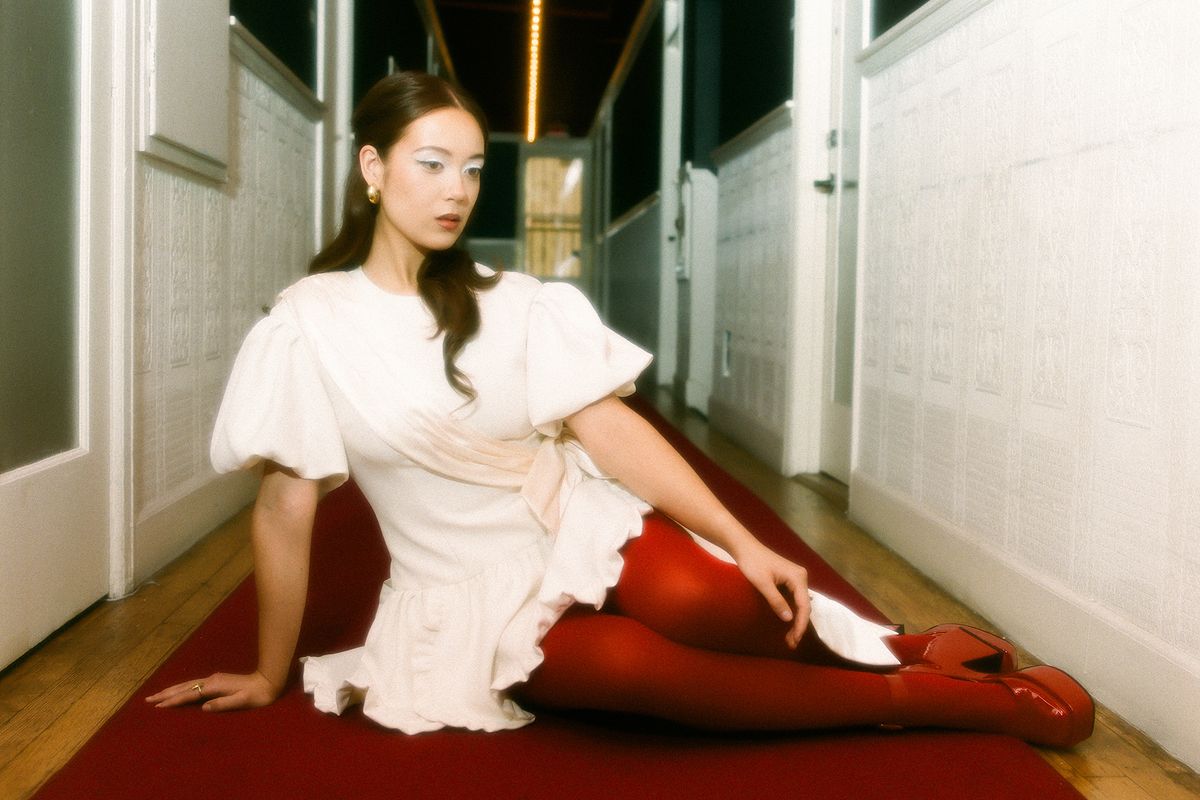





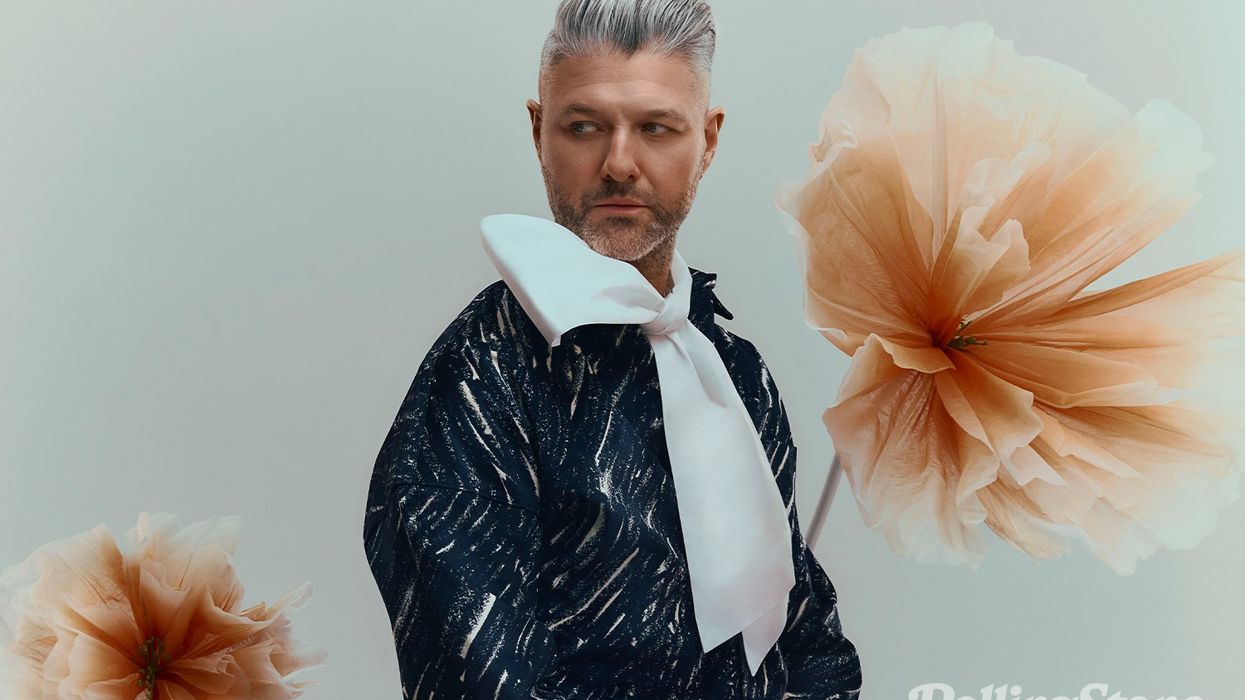
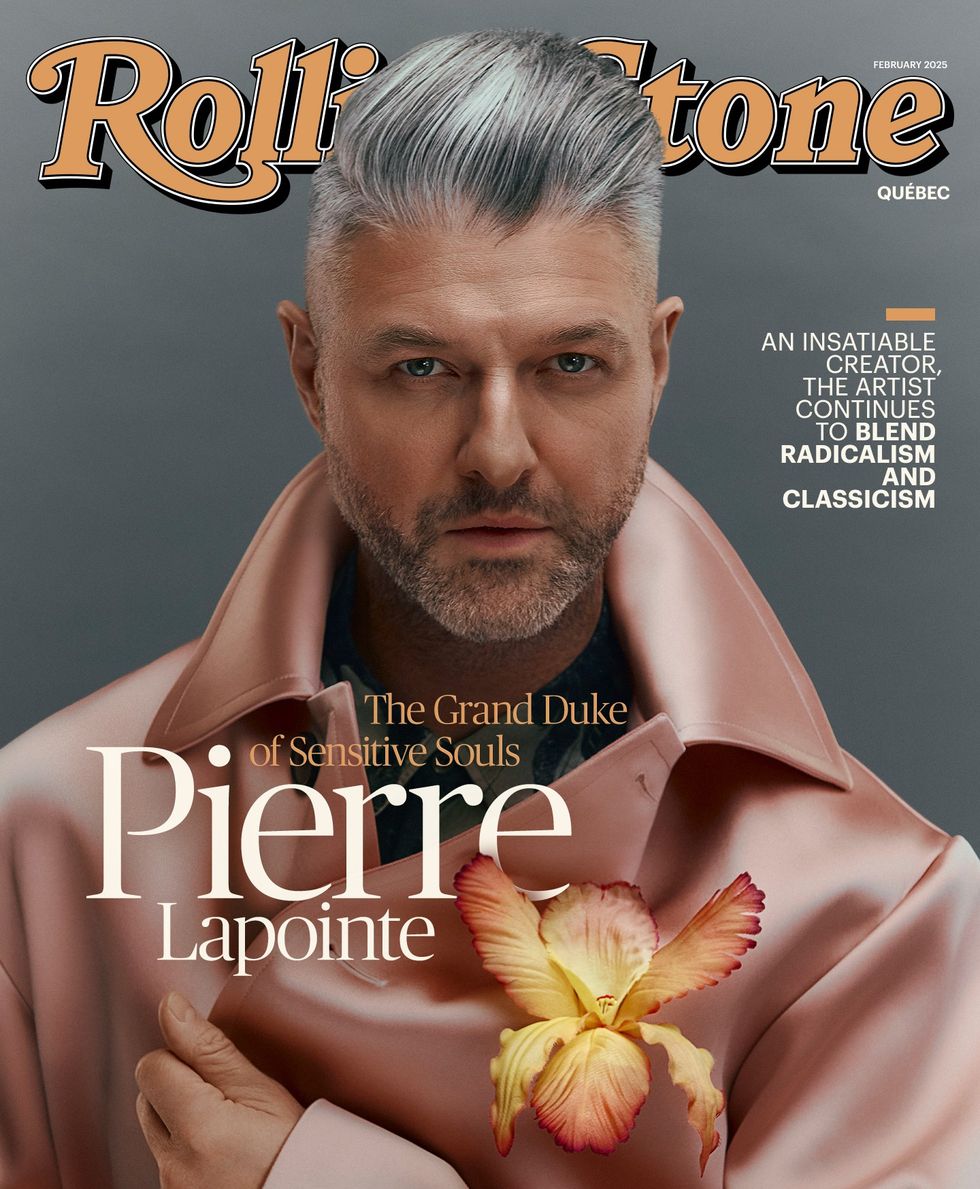 Coat (polyester and wool), shirt (silk), Dries Van Noten, SSENSE.com / Flower (silk), M&S Schmalberg
Coat (polyester and wool), shirt (silk), Dries Van Noten, SSENSE.com / Flower (silk), M&S Schmalberg
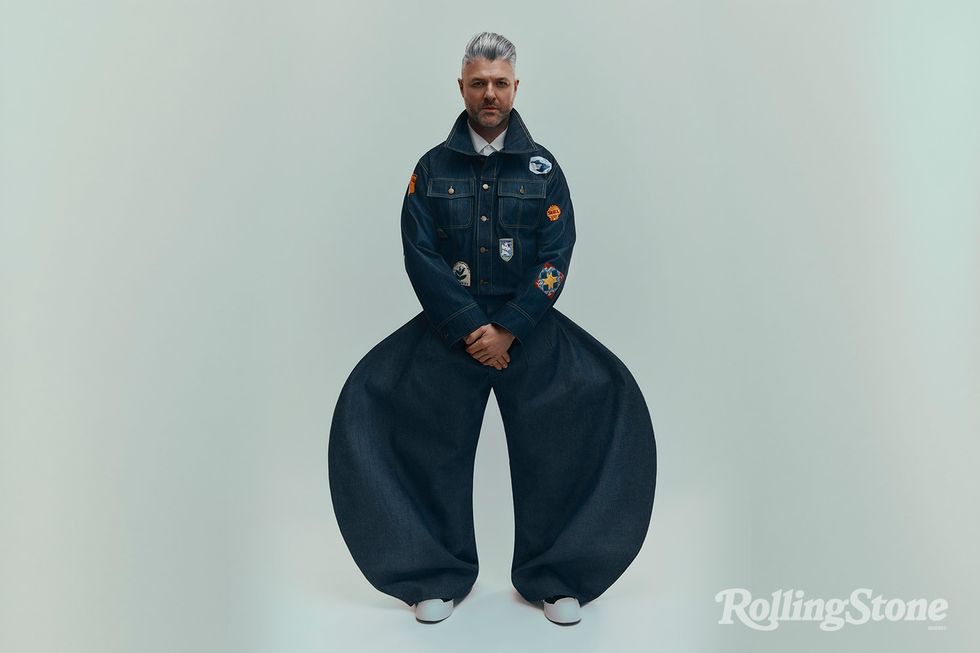 Blouson (denim and hand embroidered patches), WJ Crosson / Shit (polyester), Homme plissé Issey Miyake, Holt Renfrew/Pants from personal collection/ Shoes(canvas), Marni
Blouson (denim and hand embroidered patches), WJ Crosson / Shit (polyester), Homme plissé Issey Miyake, Holt Renfrew/Pants from personal collection/ Shoes(canvas), Marni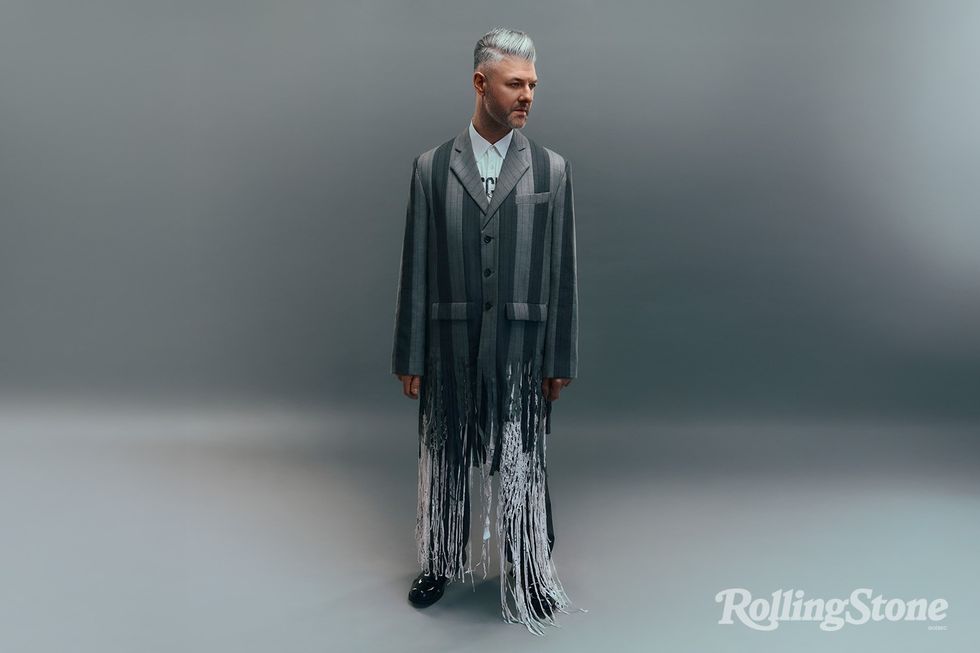 Jacket and pants (virgin wool), shirt (acrylic coated cotton), Moschino / Shoes from Pierre Lapointe's personal collection
Jacket and pants (virgin wool), shirt (acrylic coated cotton), Moschino / Shoes from Pierre Lapointe's personal collection